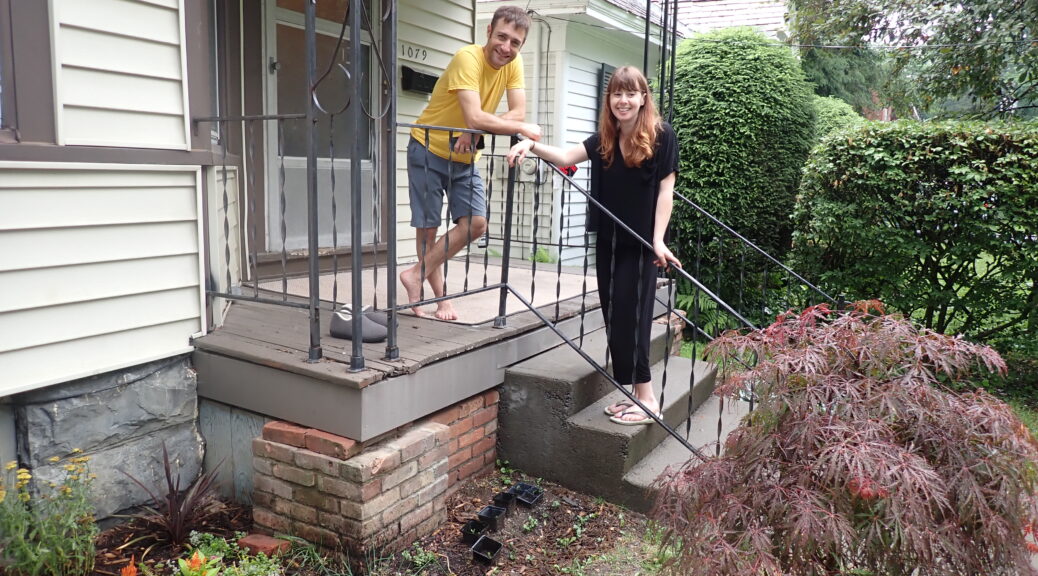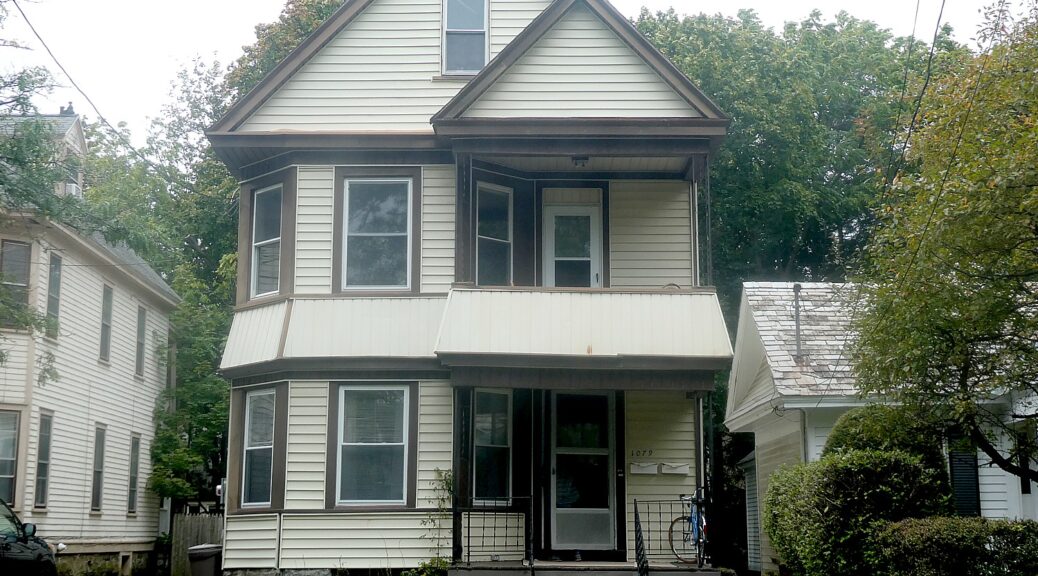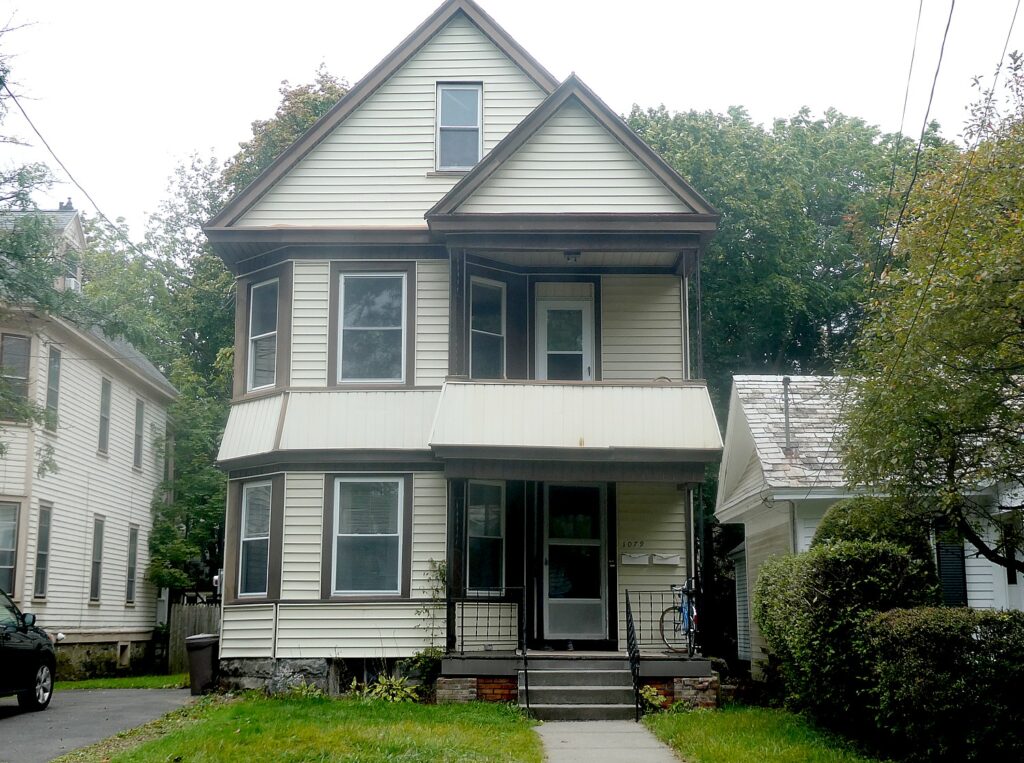
This fact sheet from the White House details President Biden’s plans to lower housing costs for working families. This includes building and preserving over 2 million new homes to lower rents and cost of buying a home. –Karen Rubin, [email protected]
President Biden believes housing costs are too high, and significant investments are needed to address the large shortage of affordable homes inherited from his predecessor and that has been growing for more than a decade. During his State of the Union Address, President Biden will call on Congressional Republicans to end years of inaction and pass legislation to lower costs by providing a $10,000 tax credit for first-time homebuyers and people who sell their starter homes; build and renovate more than 2 million homes; and lower rental costs. President Biden also announced new steps to lower homebuying and refinancing closing costs and crack down on corporate actions that rip off renters.
We are starting to see some progress. More housing units are under construction right now than at any time in the last 50 years, rents have fallen over the last year in many places, and the homeownership rate is higher now than before the pandemic. But rent is still too high, and Americans who want to buy a home still have difficulty finding one they can afford. That is why President Biden has a landmark plan to build over 2 million homes, which will lower rents, make houses more affordable, and promote fair housing.
Lowering Costs of Homeownership
For many Americans, owning a home is the cornerstone of raising a family, building wealth, and joining the middle class. Too many working families feel locked out of homeownership and are unable to compete with investors for a limited supply of affordable for-sale homes. President Biden is calling on Congress to enact legislation to enable more Americans to purchase a home, including:
- Mortgage Relief Credit. President Biden is calling on Congress to pass a mortgage relief credit that would provide middle-class first-time homebuyers with an annual tax credit of $5,000 a year for two years. This is the equivalent of reducing the mortgage rate by more than 1.5 percentage points for two years on the median home, and will help more than 3.5 million middle-class families purchase their first home over the next two years.
The President’s plan also calls for a new credit to unlock inventory of affordable starter homes, while helping middle-class families move up the housing ladder and empty nesters right size. Many homeowners have lower rates on their mortgages than current rates. This “lock-in” effect makes homeowners more reluctant to sell and give up that low rate, even in circumstances where their current homes no longer fit their household needs. The President is calling on Congress to provide a one-year tax credit of up to $10,000 to middle-class families who sell their starter home, defined as homes below the area median home price in the county, to another owner-occupant. This proposal is estimated to help nearly 3 million families.
- Down Payment Assistance for First-Generation Homeowners. The President continues to call on Congress to provide up to $25,000 in down payment assistance to first-generation homebuyers whose families haven’t benefited from the generational wealth building associated with homeownership. This proposal is estimated to help 400,000 families purchase their first home.
The President isn’t waiting for Congress to lower costs for homebuyers and homeowners. Last year, the Department of Housing and Urban Development (HUD) reduced the mortgage insurance premium for Federal Housing Administration (FHA) mortgages, saving an estimated 850,000 homebuyers and homeowners an estimated $800 per year. And today, the President is announcing new actions to lower the closing costs associated with buying a home or refinancing a mortgage.
- Lowering Closing Costs for Refinancing. The Federal Housing Finance Agency has approved policies and pilots to reduce closing costs for homeowners, including a pilot to waive the requirement for lender’s title insurance on certain refinances. This would save thousands of homeowners up to $1500, and an average of $750, and the lower upfront fees will unlock substantial savings for homeowners as mortgage rates continue to fall and more homeowners are able to refinance. According to independent analysis, across the market title insurance typically pays out only 3% to 5% of premiums in claims to consumers, compared to more than 70% in other types of insurance. Homeowners can still purchase their own title insurance policies if they choose to do so.
- Lowering Closing Costs for Home Mortgages. The Consumer Financial Protection Bureau will pursue rulemaking and guidance to address anticompetitive closing costs imposed by lenders on homebuyers and homeowners. These charges—which benefit the lender but not the borrower—can add thousands to the upfront costs of a mortgage. Those upfront costs cut into the amount of homebuyers’ down payments and reduce homeowners’ available equity.
In the coming months, the Department of Treasury’s Federal Insurance Office will convene a roundtable of relevant industry stakeholders, including consumer advocates and academics, in order to discuss the title insurance industry and analyze potential reforms. Building on today’s announcements, President Biden is calling on federal agencies to take all available actions to lower costs for consumers at the closing table and help more Americans access homeownership.
Lowering Costs by Building and Preserving 2 Million Homes
America needs to build more housing in order to lower rental costs and increase access to homeownership. That’s why the President is calling on Congress to pass legislation to build and renovate more than 2 million homes, which would close the housing supply gap and lower housing costs for renters and homeowners. This legislation would build on executive actions in the Biden-Harris Administration’s Housing Supply Action Plan that contributed to record housing construction last year.
- Tax Credits to Build More Housing. President Biden is calling for an expansion of the Low-Income Housing Tax Credit to build or preserve 1.2 million more affordable rental units. Renters living in these properties save hundreds of dollars each month on their rent compared with renters with similar incomes who rent in the unsubsidized market. The President is also calling for a new Neighborhood Homes Tax Credit, the first tax provision to build or renovate affordable homes for homeownership, which would lead to the construction or preservation of over 400,000 starter homes in communities throughout the country.
- Innovation Fund for Housing Expansion. The President is unveiling a new $20 billion competitive grant fund as part of his Budget to support communities across the country to build more housing and lower rents and homebuying costs. This fund would support the construction of affordable multifamily rental units; incentivize local actions to remove unnecessary barriers to housing development; pilot innovative models to increase the production of affordable and workforce rental housing; and spur the construction of new starter homes for middle-class families. According to independent analysis, this will create hundreds of thousands of units which will help lower rents and housing costs.
- Increasing Banks’ Contributions Towards Building Affordable Housing. The President is proposing that each Federal Home Loan Bank double its annual contribution to the Affordable Housing Program – from 10 percent of prior year net income to 20 percent – which will raise an additional $3.79 billion for affordable housing over the next decade and assist nearly 380,0000 households. These funds will support the financing, acquisition, construction, and rehabilitation of affordable rental and for-sale homes, as well as help low- and moderate-income homeowners to purchase or rehabilitate homes.
Lowering Costs for Renters
President Biden is also taking actions to lower costs and promote housing stability for renters. The White House Blueprint for a Renters Bill of Rights lays out the key principles of a fair rental market and has already catalyzed new federal actions to make those principles a reality. Today, President Biden is announcing new steps to crack down on unfair practices that are driving up rental costs:
- Fighting Rent Gouging by Corporate Landlords. The Biden-Harris Administration is taking action to combat egregious rent increases and other unfair practices that are driving up rents. Corporate landlords and private equity firms across the country have been accused of illegal information sharing, price fixing, and inflating rents. As part of the Strike Force on Unfair and Illegal Pricing announced by President Biden on Tuesday, the President is calling on federal agencies to root out and stop illegal corporate behavior that hikes prices on American families through anti-competitive, unfair, deceptive, or fraudulent business practices. In a recent filing, the Department of Justice (DOJ) made clear its position that inflated rents caused by algorithmic use of sensitive nonpublic pricing and supply information violate antitrust laws. Earlier this month, the Federal Trade Commission and DOJ filed a joint brief further arguing that it is illegal for landlords and property managers to collude on pricing to inflate rents – including when using algorithms to do so.
- Cracking Down on Rental Junk Fees. Millions of families incur burdensome costs in the rental application process and throughout the duration of their lease, from “convenience fees” simply to pay rent online to fees charged to sort mail or collect trash. These fees are often more than the actual cost of providing the service, or are added onto rents to cover services that renters assume are included—or that they don’t even want. Last fall, the FTC proposed a rule that if finalized as proposed would ban misleading and hidden fees across the economy, including in housing rental agreements. Last month, HUD released a summary of banned non-rent fees within their rental assistance programs. These actions build on voluntary commitments the President announced last summer from major rental housing platforms to provide customers with the total, upfront cost on rental properties on their platform.
Expanding Housing Choice Vouchers. Over the last three years, the Administration has secured rental assistance for more than 100,000 additional households. The President is calling on Congress to further expand rental assistance to more than half of a million households, including by providing a voucher guarantee for low-income veterans and youth aging out of foster care – the first such voucher guarantees in history. Receiving a voucher would save these households hundreds of dollars in rent each month.



